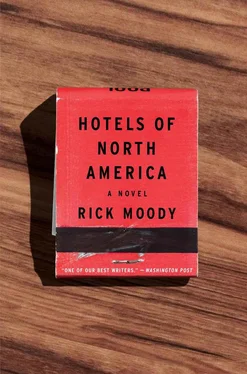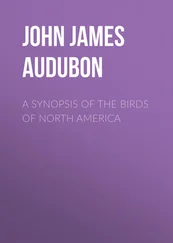In the afternoons, we would go out to see things in the area around Puglia, like a chapel that was filled with the bones of martyrs, or some thatched cottages called trulli that looked like the backdrop for an elvish fantasy spectacular. We went to the tip of the boot heel of Italia, Leuca, to see the Adriatic and the Mediterranean meet, and there were a lot of attractive young Italians there eating gelato. We were not them. One day we were on our way to see some mosaic somewhere — Otranto, I think — and my wife became sick from the heat and had to sit down or have some food, and I began to feel in that moment that my obligation to teach, and my vanishing from dinner to watch Italian television on my own, and her inability to keep up on the long marches of tourism were disparate examples of the pain that is vacation.
One night, toward the end of our stay, we noticed that the birds in the birdcage in the center of the farm had disappeared since that morning. What had looked so lovely and symbolic in the morning, a mating pair of some lovely species, destined to replenish their numbers in the fullness of theological time, was now symbolic only of loss, a few feathers, some bird shit, and kernels of cracked corn. My wife realized at once what we should have realized all along, namely, that we had been eating the birds. Every day a different bird, and it had seemed so picturesque, so fecund, and really it was just about the myriad ways you could kill those animals. Had the others known what we were too naive to know? That night at dinner, in broken Italian, we asked the Ernest Borgnine proprietor to tell us what had happened to the pair of grouse or pheasants or turkeys or chickens that had been in the cage that morning, and he looked up at the ceiling and without a trace of a smile said, They have gone to their Heavenly Father. Everyone had a good laugh.
This was the moment that I felt my marriage beginning to give out. It seems preposterous to say so, because we were only some few years into it and it would be years more before there was ever a discussion of our separating, and this was a trip, despite some routine tribulations, that we later thought back on with some amusement. But what is that little shearing away that takes place that somehow you can’t repair? How does that happen, when it happens against your will? When there are many other such moments that you willingly tolerate or let go of without incident? There are rows, shouting matches, secreted away or even in public that seem so much worse but that are followed by sweet reunion, and why is this the moment that later appears to be when things started to go wrong? Here we were, laughing on a beach on the Adriatic, watching the Italian families with their not terribly flattering bathing suits playing in the grainy uncomfortable sand, and gazing out together on the still Adriatic, with its effluvial tide of Albanians on their fragments of boats rowing across and landing in some ditch in the middle of an olive grove and sleeping on a mattress in that ditch, all so they could come to the old, grizzled, implacable Europe.
Back then I could still remember a first kiss in some hotel in Detroit, and a time when she still wanted to whisper something in my ear and would set a cup of tea in front of me in the morning. It would just appear. To any outside observer all was fine, and in Puglia there was a dish of olives the day before, and there would be a dish of olives again that night containing olives as good as any I had ever tasted, and by first kiss I mean the kind of rhetorical kiss that says the future is of milk and honey. I could still have remembered it there, and maybe the Italian families could still remember such things too, could remember when they had been young and riding around on motorbikes, not bent out of shape with children and responsibilities, but simply young and untroubled and beautiful and eating gelato, three or four of them beautiful and hanging off a motorbike careening down a one-way street in the dark with no headlights, no helmets, going forty-five miles an hour and barely missing some Fiat racing around a curve, laughing, the dumb luck of it all, the dumb luck of the Mediterranean sun, the perfect light of Renaissance painting; maybe the Italians remembered all of that, and on the days when they needed to, they thought back on it. Why was this the moment that I gave up? The predictable failure of lovers over time was at least something you could warm yourself with on a long winter night. Like the mixed blessing of vacation. ★★ (Posted 3/2/2014)
Hampton Inn and Suites, 33 West Illinois Street,
Chicago, Illinois, March 21–22, 1996
I had heard about her from a friend in New York. My friend said I should meet his friend in Chicago. It was actually Detroit, in all honesty, but as these reviews are appearing in a public forum, I’m going to say it was Chicago, and I have made up a hotel and an address, and you will simply have to believe me that this hotel is exactly like the hotel in question, and thus my rating is accurate, even if it is accurate only by analogy.
It was the early days of this life that is now increasingly common, by which I mean the online life, the life where I ply my trade as a top-rated hotel reviewer. I was already having a number of affairs with people I didn’t know in the real world, but only in the so-called chat rooms of online life, those early features that have now given way to random mutual masturbation in video with Muscovites, and so for the early part of our association, which lasted about a week, we spoke mainly in this online way, and she had no face, so far as I knew, and could easily have been a housewife from Kansas with IBS and multiple-personality disorder. I didn’t care so much about her real identity; the simulation of an identity was adequate enough for the time being. For a few days we did that dance where your identity is a collision of citations — books, recordings, musicals, films — and then a number of snapshots that you re-create in some fit of idealized self, and she passed all the tests, meaning that she adhered very faithfully to a fantasy idea of a woman with whom I might be involved, if in fact I was ever going to be involved with another woman rather than just some humiliating magazines or online avatars.
I had no particular reason to believe that she existed. Nevertheless, it occurred to me, and here I was way ahead of the curve in the digital world, that maybe I ought to meet her, just to avoid wasting weeks more of time, several hours a night, talking to her in chat rooms and wondering if she was on a respirator or had only one limb. We discussed this and, incredibly, were in perfect agreement about how to proceed, though perhaps less incredibly when one recalls that in the early frothy period of talking to someone who doesn’t have a body, who is a brain in a vat, you agree about everything. In my mind she was tall, thin, blue-eyed, and brunette, with her nose just slightly off-center and perhaps a gap between her front teeth, and she liked to wear denim with a few rips in it, but not too many, and she wore cheap sneakers and liked thrift-store clothes, especially bowling shirts. It would be useful, I felt, to compare this imagined person with the real person, who happened to live in Chicago. I had been in Chicago for business once or twice, because I had been most everywhere. Usually I stayed in the Loop, not seeing much of the city besides, and I was looking forward to seeing some of the city in a more relaxed way. I believe my father, from whom I was estranged, as I might have mentioned, also lived in Chicago at one time. Though I had no interest in chasing down the facts of my father’s life, his having lived there did leave an afterglow on the city for me. And who knew — perhaps the father who had fled was just a few blocks over from John Wayne Gacy’s house. Maybe my father too had learned how to contact women online, pretending to be a luxury car dealer with a double-breasted suit and a power tie who was looking for someone who enjoyed hiking and single-malt Scotch whisky.
Читать дальше












